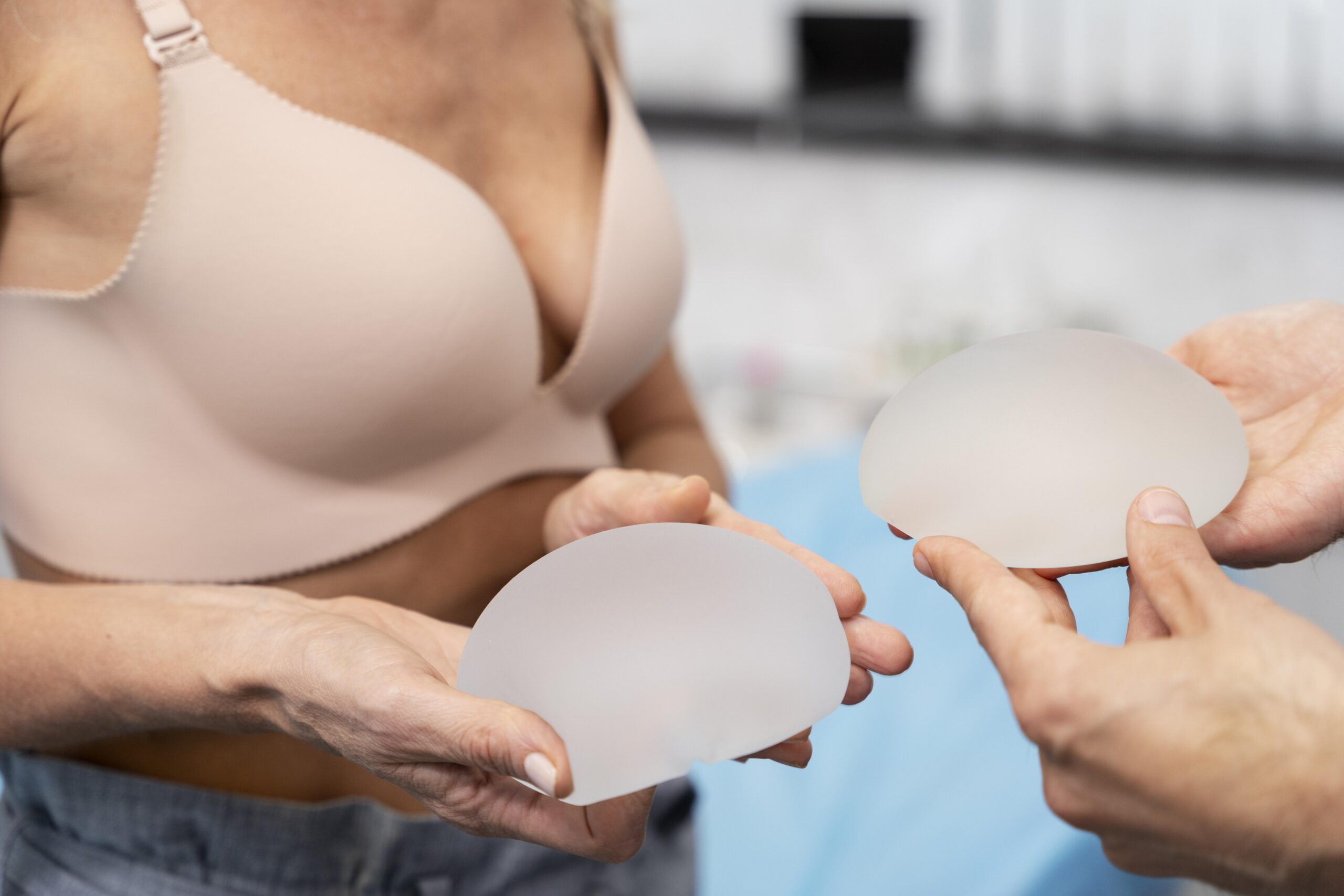
Breast Augmentation In Kakinada: Breast augmentation is a surgical procedure that enhances breast size and shape by inserting implants. In Kakinada, experienced plastic surgeons offer this procedure to women seeking to improve their body image and self-esteem.

Understanding Breast Augmentation In Kakinada
Types of Breast Implants
- Silicone Implants: These are filled with a cohesive silicone gel and offer a natural feel and appearance.
- Saline Implants: These are filled with sterile saline solution. They are less expensive than silicone implants and can be easily adjusted or removed if necessary.
Benefits of Breast Augmentation
- Enhanced Self-Esteem: This is the most significant benefit. Many women experience a boost in confidence and self-worth after achieving their desired breast size and shape.
- Improved Body Image: Breast augmentation can help women feel more comfortable and confident in their bodies, leading to improved overall well-being.
- Balanced Proportions: It can help achieve a more balanced and proportionate figure, especially for women who have experienced breast changes due to pregnancy, weight fluctuations, or aging.
- Increased Breast Size and Fullness: The procedure can effectively address concerns about small or asymmetrical breasts.
- Improved Clothing Fit: Larger breasts can enhance the fit of clothing, making women feel more comfortable and confident.
- Addressing Breast Concerns: It can help correct breast asymmetry, improve breast shape after pregnancy or weight loss, and reconstruct breasts following mastectomy.
Choosing the Right Surgeon in Kakinada
Selecting a qualified and experienced plastic surgeon is crucial for a successful outcome for breast augmentation in Kakinada. Look for a surgeon with:
- Board Certification: Ensure the surgeon is board-certified by a recognized medical board, such as the National Board of Examinations (NBE) in India.
- Expertise: Choose a surgeon with extensive experience in breast augmentation procedures and a strong track record of successful outcomes.
- Good Reputation: Research the surgeon’s reputation and patient testimonials. Read reviews on online platforms and inquire about patient satisfaction.
- Personalized Approach: Select a surgeon who takes the time to understand your individual goals, concerns, and medical history.
- Excellent Communication: Choose a surgeon who communicates effectively and clearly addresses all your questions and concerns.
Pre-Operative Considerations
- Thorough Consultation: Schedule a comprehensive consultation with the surgeon to discuss your desired outcome, medical history, and any existing concerns or conditions.
- Physical Examination: The surgeon will conduct a thorough physical examination and may order tests to assess your overall health and suitability for the procedure.
- Lifestyle Adjustments: You may need to stop smoking and certain medications, such as blood thinners, before the surgery.
- Arrange Support: Ensure you have someone to assist you with daily activities in the initial recovery period.
Post-Operative Care
- Rest: Adequate rest is crucial for proper healing. Avoid strenuous activities, heavy lifting, and excessive physical exertion for several weeks.
- Pain Management: Follow the surgeon’s instructions for pain management using prescribed medications.
- Compression Garments: Wear compression garments as directed to minimize swelling, support the implants, and promote healing.
- Wound Care: Keep the incision sites clean and dry. Follow the surgeon’s instructions for wound care diligently.
- Diet and Hydration: Maintain a healthy diet and stay well-hydrated to support the healing process.
- Avoid Sun Exposure: Protect the incision sites from direct sunlight to prevent scarring.
- Follow-up Appointments: Attend all scheduled follow-up appointments with the surgeon for monitoring, wound care, and assessment of healing progress.

Potential Risks and Complications
- Scarring: Some scarring is expected, but the extent varies depending on individual healing and surgical technique.
- Infection: Although rare, infection is a possible complication and requires prompt medical attention.
- Capsular Contracture: This condition involves the formation of scar tissue around the implant, which can cause the breast to feel hard or firm.
- Implant Rupture or Leakage: While uncommon, implants can rupture or leak, requiring replacement surgery.
- Asymmetry: Slight asymmetry may occur, but it is usually minimal and can often be addressed with minor adjustments.
- Changes in Sensation: Temporary numbness or tingling in the nipples or surrounding area may occur.
- Hematoma or Seroma: These are fluid collections that may form around the implant and may require drainage.
Important Considerations
- Breastfeeding: Breast augmentation may affect breastfeeding. Discuss this with your surgeon before the procedure to understand the potential implications.
- Long-Term Results: Breast implants may not last indefinitely and may require replacement over time.
- Emotional Factors: Ensure your decision to undergo breast augmentation is based on personal reasons and not solely on external pressures or expectations.
- Realistic Expectations: It’s crucial to have realistic expectations about the outcomes of the procedure. Discuss your desired results with your surgeon and understand the limitations and potential risks.
Conclusion:
Breast augmentation can be a life-changing experience for many women in Kakinada. By carefully selecting a qualified and experienced plastic surgeon and following pre- and post-operative instructions, you can significantly increase your chances of a successful and satisfying outcome for breast augmentation in Kakinada.
Remember that open and honest communication with your surgeon is essential throughout the process. Discuss your concerns, ask questions, and ensure you understand the procedure, risks, and potential complications.
